“我想,戏剧教育的真正意义,就是一起成功。当“戏剧之夜”顺利结束的时候,同学们表现出前所未有的兴奋,这是我整个职业生涯中都从未见过的,而这种兴奋就是因为他们真的携手在一起,共同完成了挑战。”
—Mr. Stephen Delano
(表演艺术部门主任)
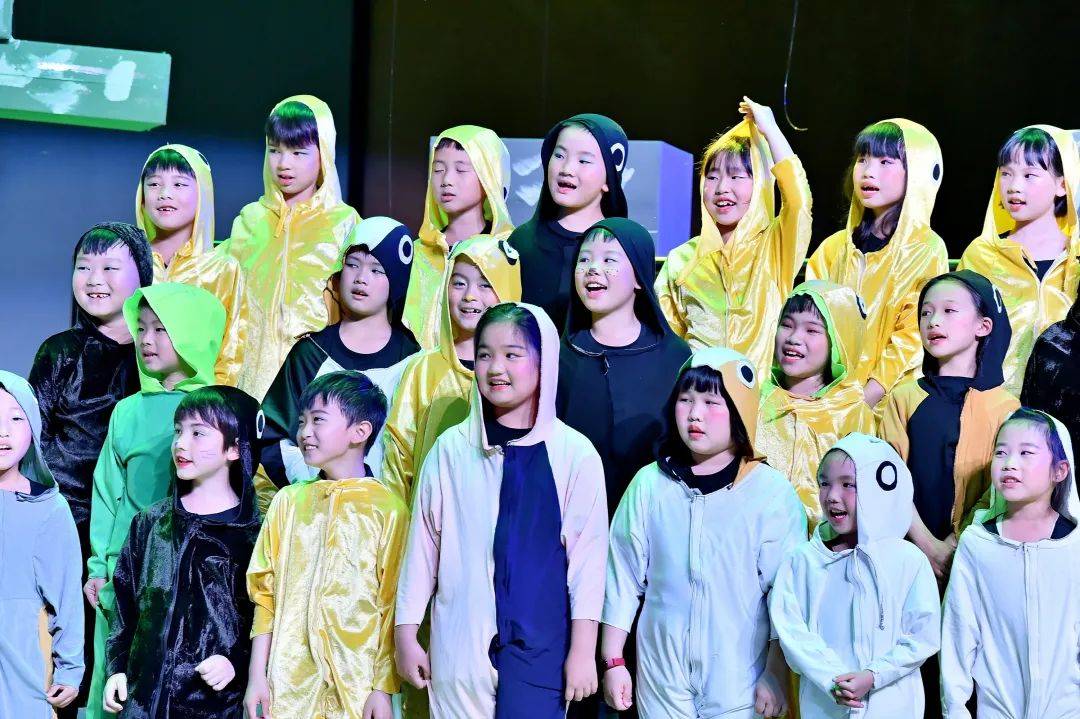
从去年10月到今年4月,成都狄邦肯思学校的学生们经过7个月的努力,整个团队完成一场华丽的演出,收获了巨大的成功。当整个作品完整呈现之后,同学们表现出前所未有的兴奋,在演出结束后的很长一段时间里,他们仍然会讨论这部作品,希望再经历一次这样的过程,期待下次做的更好。
两幕由戏剧老师围绕学校精神和价值观,以“团队合作”为主旨精心挑选的剧作,分别为小学部的同学完成的《沼泽》(Swamped)和中学部同学完成的《亚瑟王与他的骑士》(Arthur and the Magnificent Knights)。同学们极富表现力的英文台词和极具感染力的表演,收获了家长们的一致好评。
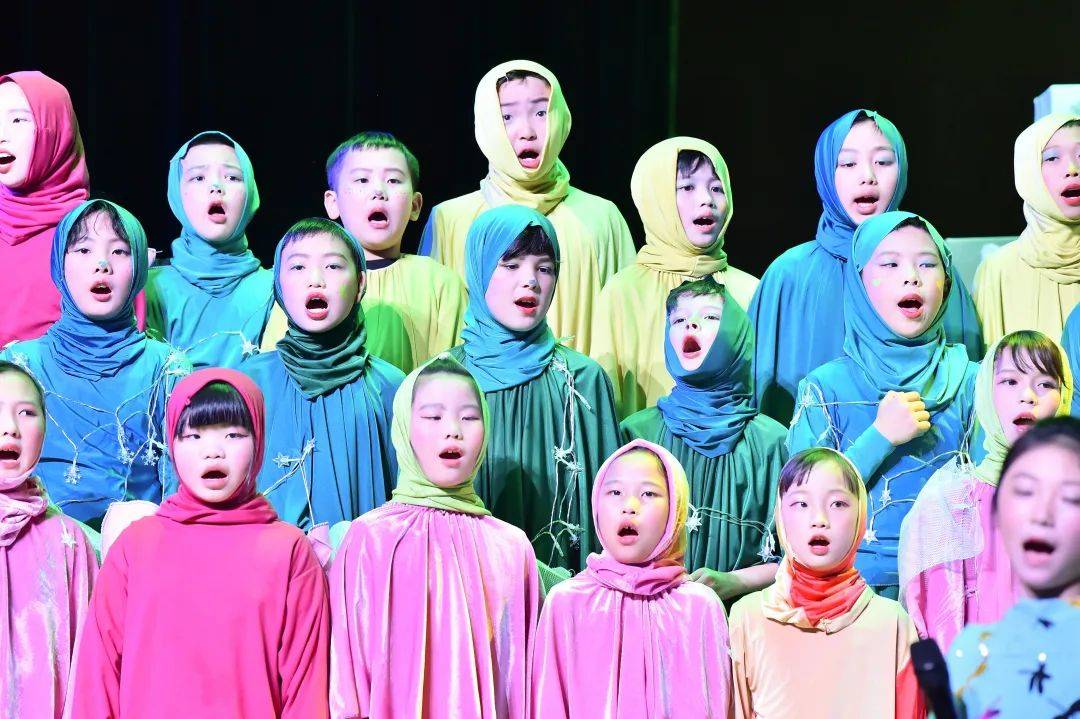

那么,在狄邦肯思戏剧教育是如何开展的,专业的艺术老师们是如何在短短一个学年的时间里,运用有限的课堂时间,帮助学生认识自我,实现美学素养与综合能力的“多赢”,让我们一起走进戏剧课堂,探寻戏剧教育的“秘诀”。
01 戏剧作为一种表演艺术有益于学生能力素养的综合提升
在狄邦肯思,戏剧课程和音乐课程同属于表演艺术课程(Performing Arts)的一部分。表演艺术作为一个完整的学科体系,通过直观形象的表演与观众产生情感交流,涵盖演奏、演唱、舞蹈、曲艺、戏剧、影视等非常宽泛的内容,非常有益于学生能力素养的提升。
区别于传统戏剧教学集中于某些特定年级,以文本学习为主展开教学的模式,狄邦肯思的戏剧课程更为注重学生的创造性,强调通过舞台表现力感染观众,鼓励每一位学生积极参与其中,从不同角度展现自我,在严肃认真的学习中不断改变,不断成长。
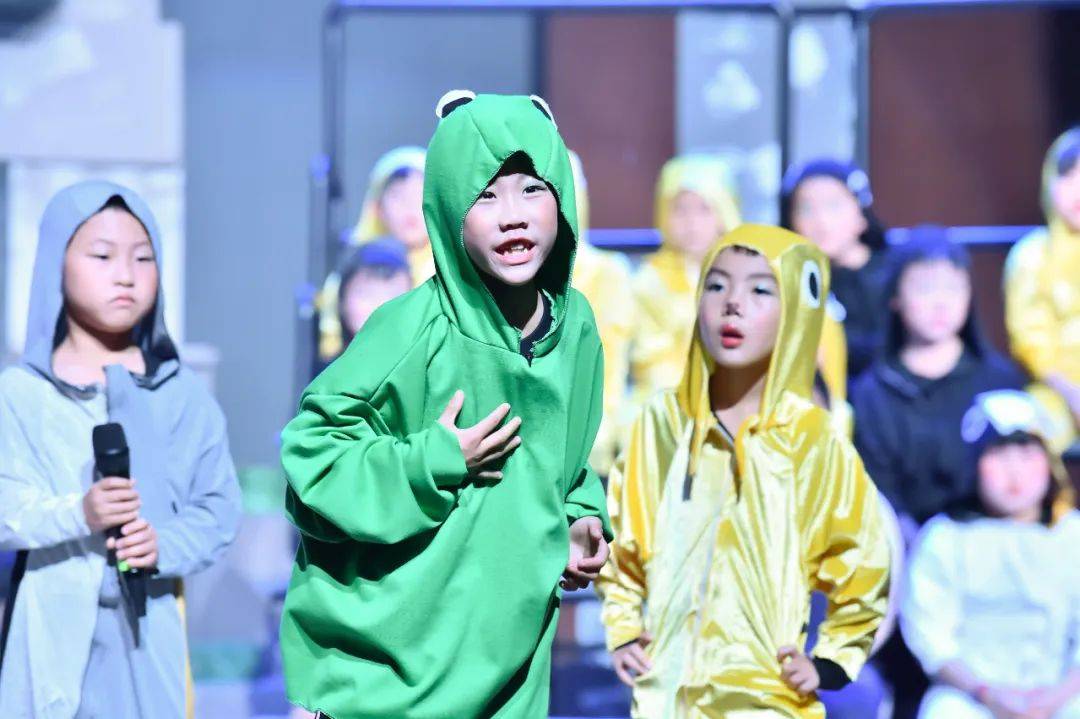
小学阶段,孩子们的身体正在发育,戏剧作为必修课程,主要围绕四个关键能力展开,即身体协调能力,语言能力(尤其是英语能力),创造性思维和想象力,以及在团队中的合作能力。老师会在课堂上安排很多小活动,充分利用教室的空间,引导学生融入不同的场景,通过不同的走位、体态、语气语调等模拟不同的角色,上演不同的剧情。
进入初中,学生们将处理更为复杂的剧本,台词和对话的难度也随之增加。每堂课程都会融入表演元素,尤其是即兴表演。学生们可以两人一组,在有限的时间内发挥想象力,认真揣摩角色,思考如何让表演变得有趣,运用英语语言和肢体语言赋予不同角色生命力。
升入G9以后,戏剧由必修课变为选修课,之后,学生可依据个人兴趣或未来发展方向选修IGCSE或A-level的戏剧课程。
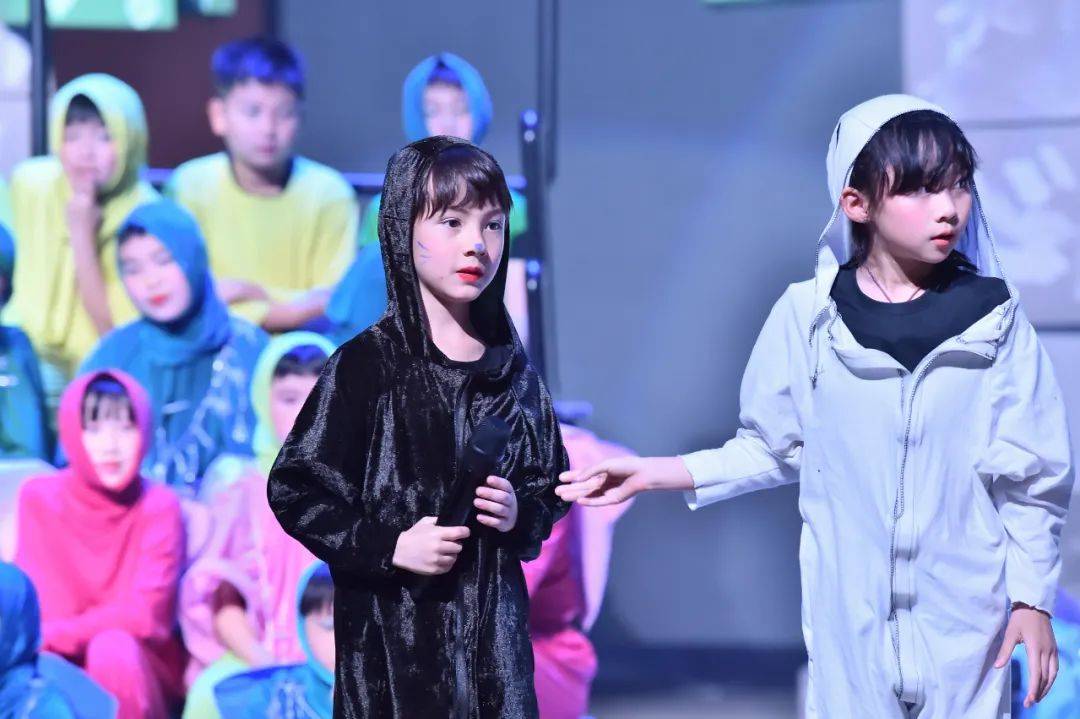
此外,老师们还会融入一些额外的主题,与不同学科联动。比如同学们在英语课堂上学习了莎士比亚的《暴风雨》(Tempest),那么延展到戏剧课堂中,老师也会让学生从创造性的角度去尝试表演,在完成戏剧教学的同时,帮助学生提升英语能力。
在我们G9的戏剧课上,每节课都有很多互动,有很多发挥和表演的空间。课程是从轻松愉快的热身互动中开始的,之后老师会安排很多短剧的表演,会有简短的脚本、台词,每个学生都要可以依据脚本发挥想象力去创作。由于表演的需要 我们需要在比较短的时间内用英语的思维完成思考并表现出来,所以对语言的提升也很大。
— 常宝心 G9
02 不断深入对艺术的了解以契合每一位学生的发展目标
“在狄邦肯思学校,我们关注每一位学生的成长。”
—Mr. Stephen Delano
(表演艺术部门主任)
对于每一位加入狄邦肯思的学生而言,戏剧教学都是从“适应期”(orientation)开始的。大约一个月左右的适应期内,老师们会详细了解每一位新生的情况,了解他们的想法,帮助他们设定与自身发展相符的学习目标,并在这个过程中,不断调整教学内容,让每位学生都能在课堂上完成与其能力相符的挑战。
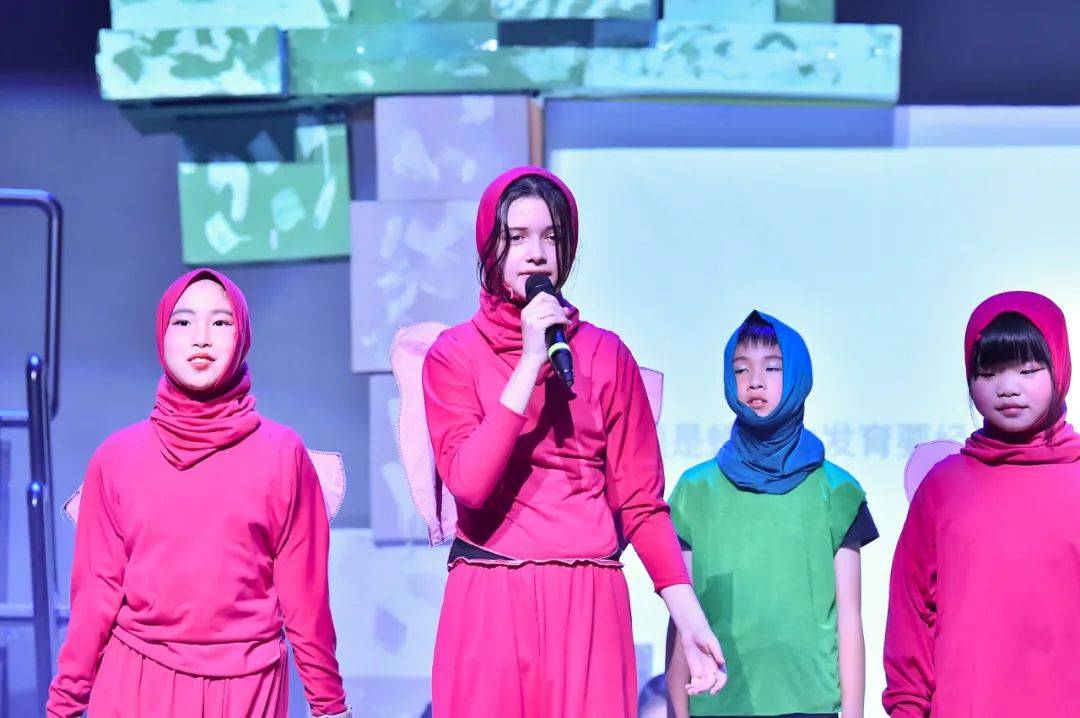
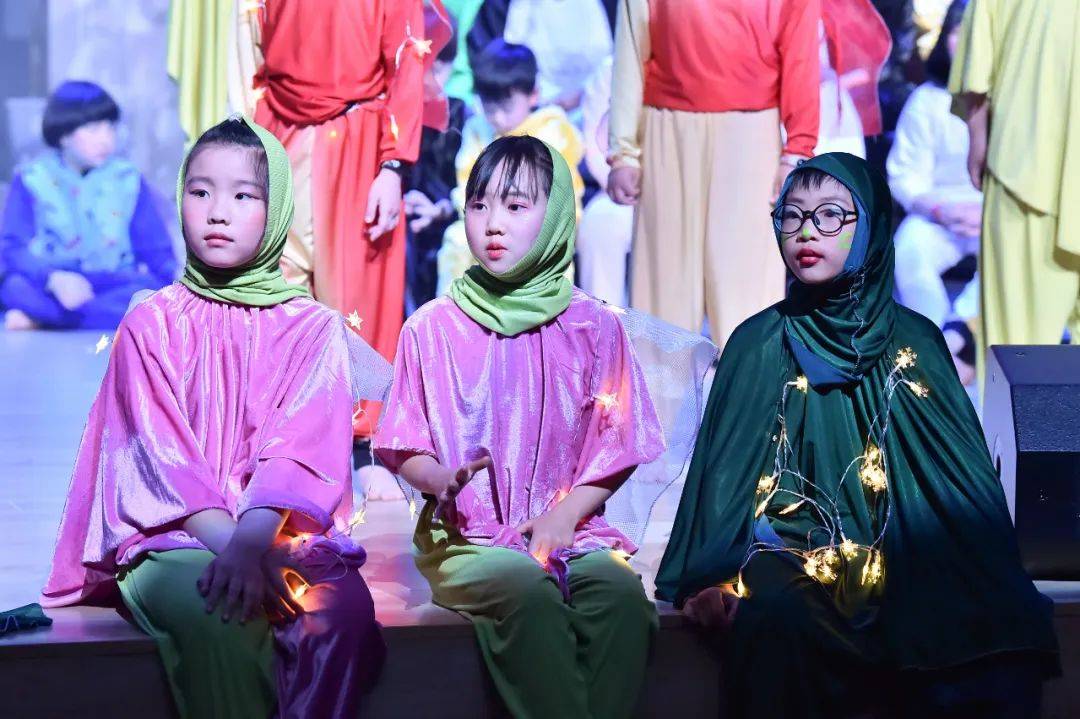
当然,对于初次接触戏剧的学生来说,这是一个全新的事物,尤其是对于那些比较害羞,或者不太善于使用肢体语言的学生来说,在不熟悉的环境中进行表演,是一个巨大的挑战。
戏剧老师Ms. Alexandra Day特意分享道:在狄邦肯思,学生们总是能够很好地适应戏剧的课堂,同学们能够在相互激励中,很好地完成学习任务,无论是肢体语言还是英语技能都有很大的提升。最让她感到骄傲的是同学之间的相互帮助,总能在课堂上看到大家对于新同学的支持,为新同学解释“课堂传统”,帮助新生更好地融入,相互鼓励,尝试用课堂上学到的方式去表达、去演绎……
除了日常的课堂教学之外,老师们也利用ECA、CCA、剧团、合唱团、课外活动、班级展示等互动,加深对学生的了解,不断调整教学计划和教学内容,以契合学生每一阶段的发展。
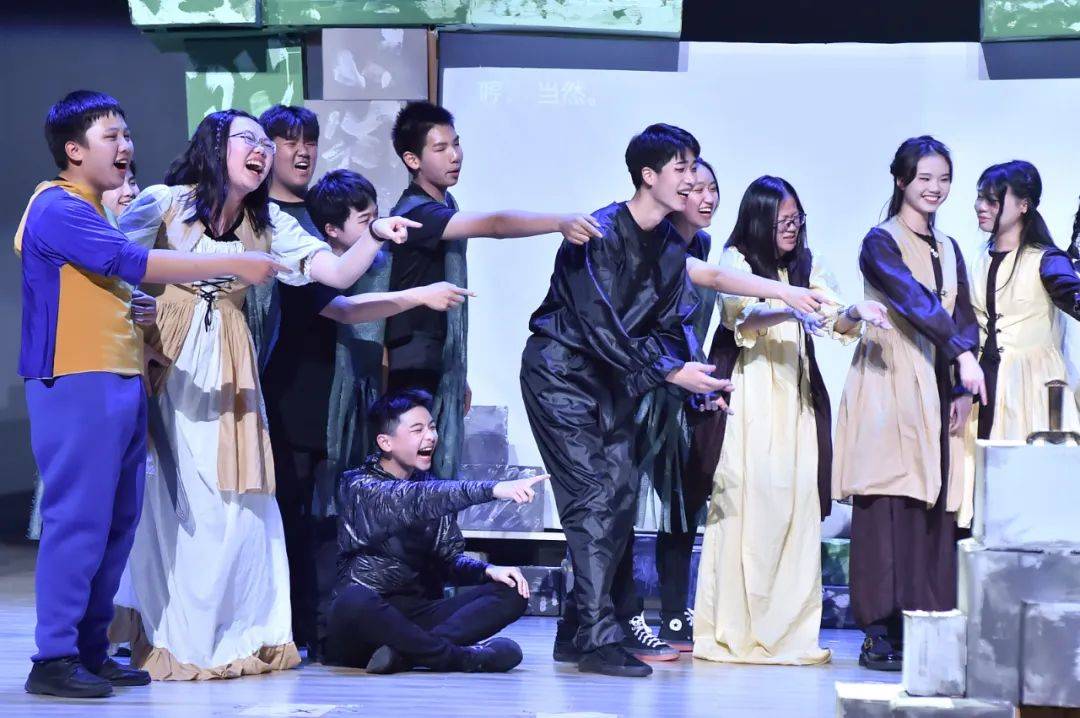
校内校外丰富多元的活动为学生提供了展示自我的机会。这种不断创作,不断自我挑战的表演经验对学生来说非常重要,不仅帮助学生在潜移默化中树立信心,也会让每个人成为团体的一部分,借助戏剧表演的纽带建立起社区意识。

我从小就比较喜欢表演,希望能够展示自己,经过了戏剧的专业课程,就更加享受在舞台上表演的感觉,也更加自信了。其实每个人都会有属于自己的闪光点,戏剧的学习过程,其实也是找到自己舞台的过程。
— 王重森 G10
戏剧课让我变得更自信了,这种自信不仅仅是在舞台上,还包括各个学科的学习中都有所收获,个人表现力也有所提高。
— 马兆隆 G10
如果某位学生希望在表演艺术方面有专业的发展,狄邦肯思老师们也将为学生提供升学所需的课程资源与支持。无论是相关专业理论的学习;还是参演不同剧目,挑战不同角色,不断积累表演经验;或是在音乐、文学、设计等更为广泛的领域充实自我…老师们都将依据学生个人对梦校及专业的具体规划,辅助学生进行针对性的积累。
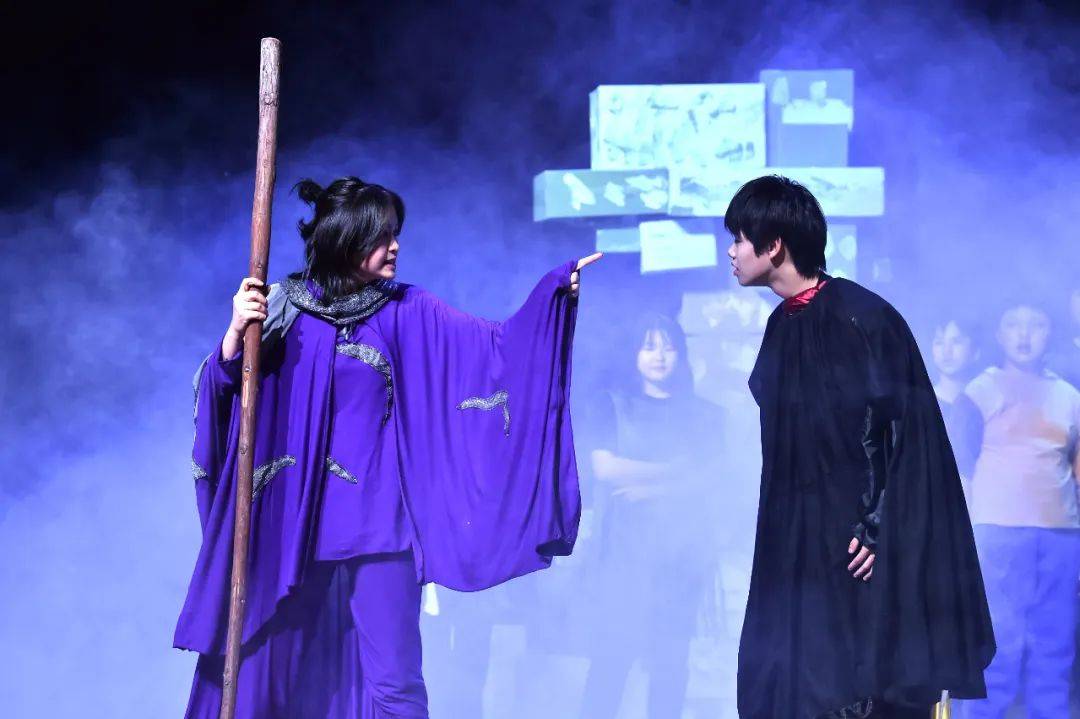


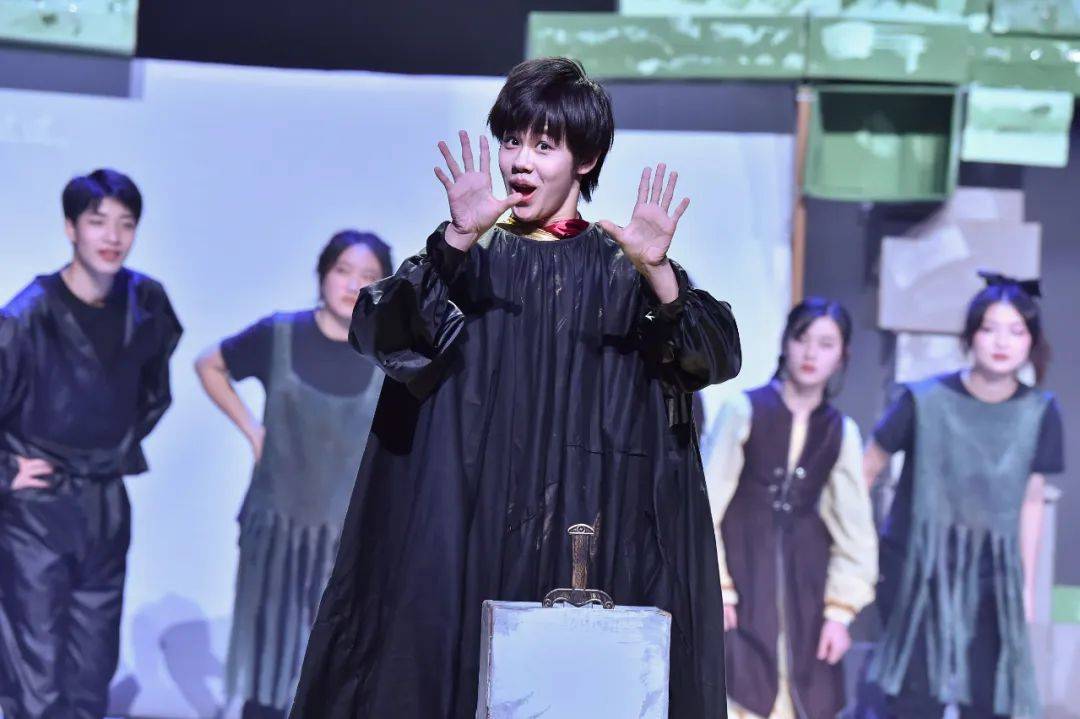
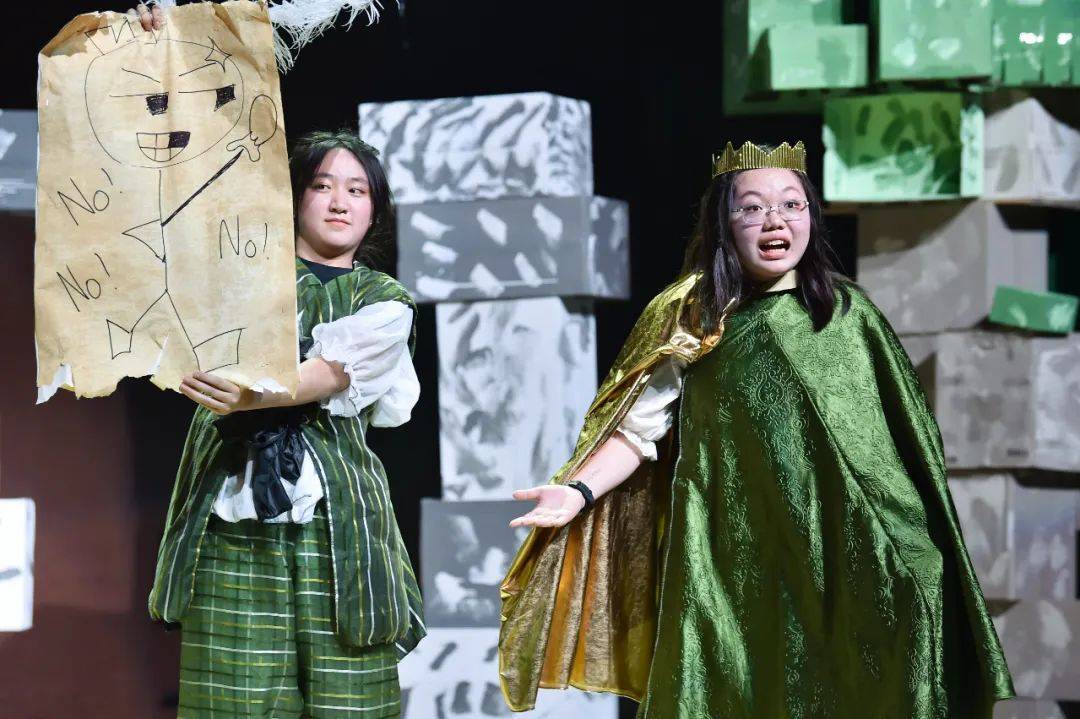
03 一起成功!将戏剧课程中习得的技能延伸到成长的各个领域
对于大多数学生而言,戏剧并非未来的职业方向,戏剧的学习更多是不断提升的一个过程,在戏剧课程中习得的技能都可以延伸到其他领域:
借由戏剧的张力,理解情绪的表达,不仅厘清自己的情绪,也会意识到不同的人有不同的情绪表达方式,在学习处理自我情绪的同时,共情他人,学会与人相处;
借由戏剧的表演,习得语言的表达,不只是运用英语交流的能力,还包括肢体语言,当学生们把口语表达和肢体语言结合在一起,领会“沟通的潜台词”,能够使用肢体和声音去传达语言文字背后的衍生意,也能够在日常生活中更好的与人交流;
借由戏剧的舞台,找寻自我、建立自信,通过课堂上不断的尝试和表演,让学生在不断的探索与试错中,踊跃参与,迅速掌握并习惯在不同的环境中展示自我,当真正需要登上舞台或面临考核时,就不会再惧怕;
借由台前幕后的共同付出,感受团队合作的魅力,一幕戏剧的成功不仅需要台前的演员,还需要专门负责后台管理的团队,有字幕组、声效组、灯光组、道具组等等,当整个作品完整呈现之后,每一位参与者都会由衷地感到骄傲。
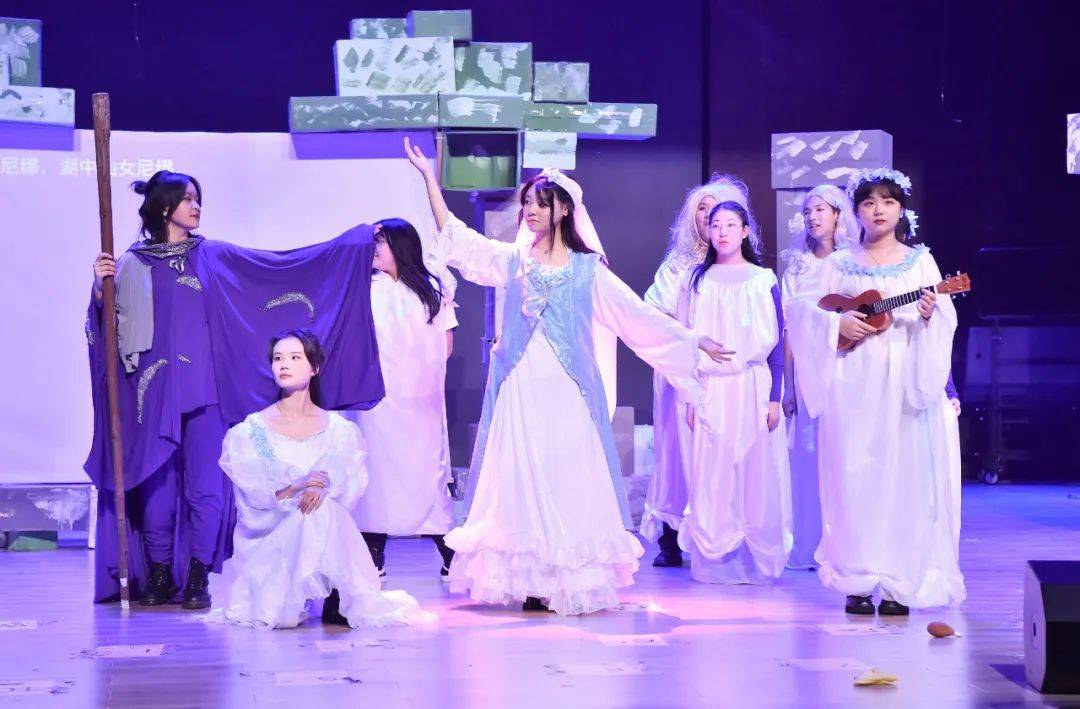
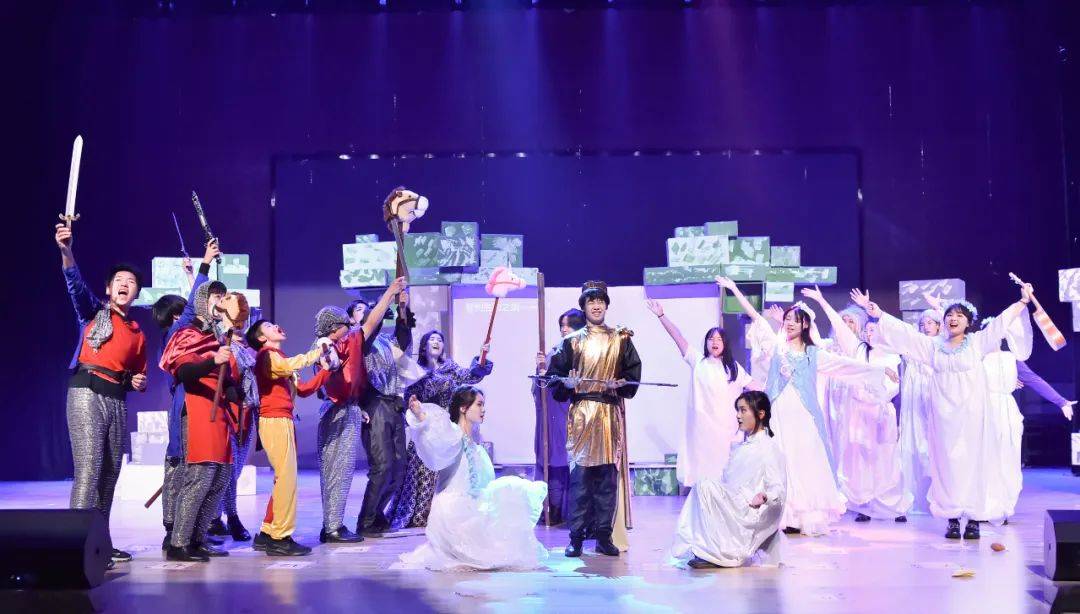
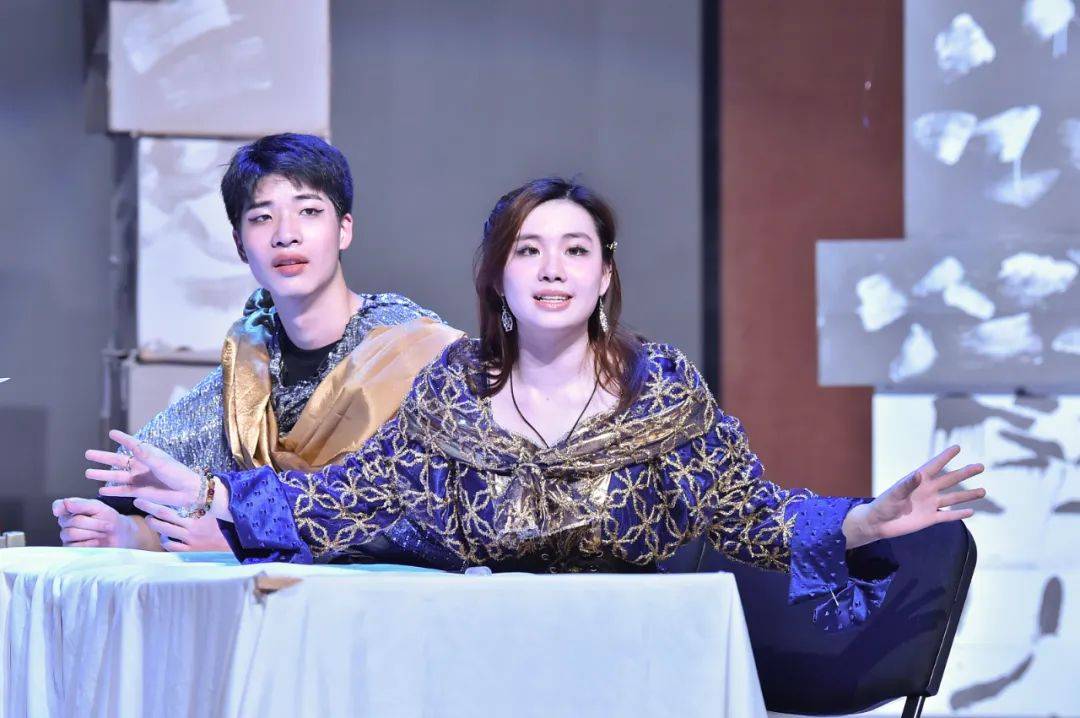
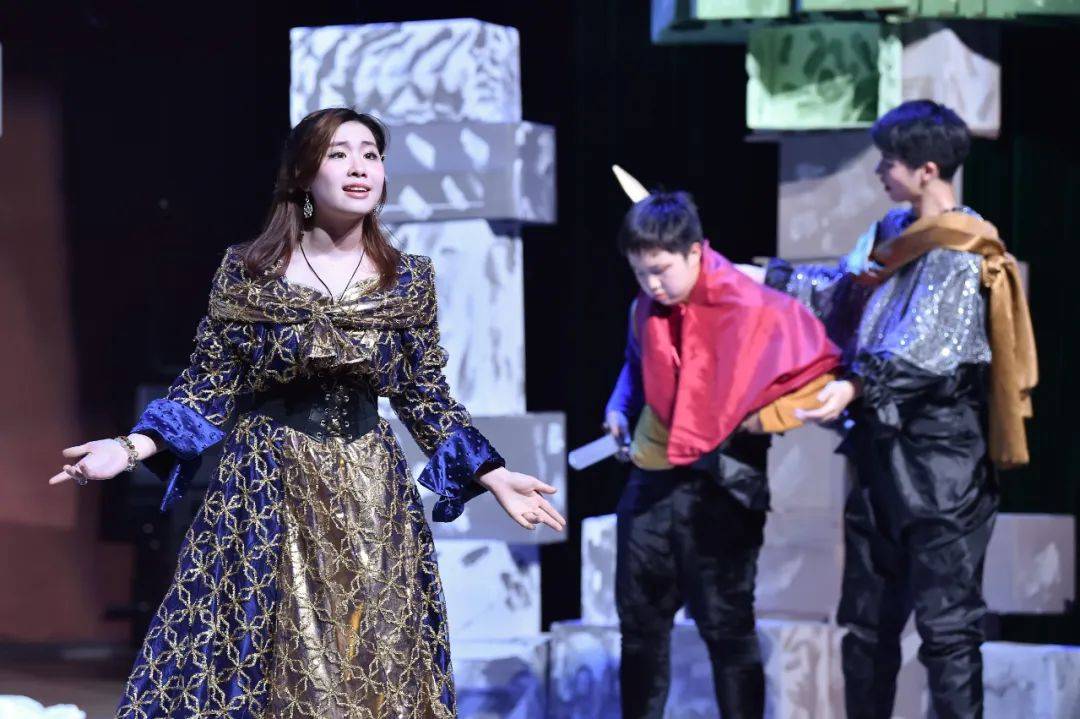

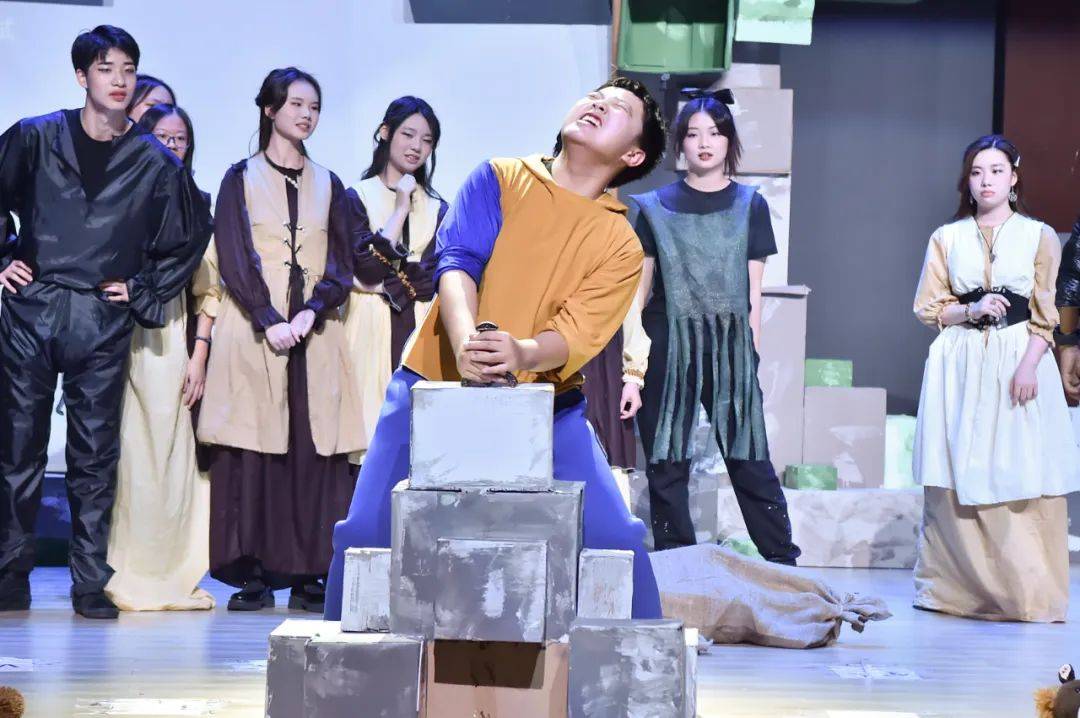
戏剧是一种群体的艺术,是一群伙伴在同一个舞台上,大家合作为共同一场演出共同努力,奋斗的时候一起付出,成功的时候分享快乐,这和自己独自登上舞台是不一样的。
— 欧阳萱莹 G10
在之前结束的戏剧表演中,我更多的负责的是后台管理的部分,包括一些灯光、音效等等,后台管理更多的是锻炼了自己的能力,工作很开心,在辛苦的过程中,和同学一起分享成功,相信这些在未来人生中都会发挥作用。
— 马毅臻 G8
随着《义务教育课程方案和课程标准(2022年版)》发布,戏剧教育在培养学生想象力、创造力、共情能力、语言能力、团队协作能力…等综合能力素养方面的积极意义越来越受到家长的关注。狄邦肯思希望,随着戏剧课程的不断推进,未来有更多的学生可以感受戏剧的魅力,每一位学子都能够在戏剧的舞台上展现自我,在人生的舞台上闪闪发光。

“I think that’s the real benefit of drama education is being successful together.I can tell you, when we did this production, I have never in my whole career seen students so excited after the production because they really felt they had accomplished something together.”
—Mr. Stephen Delano
(Director of Performing Arts)

After seven months of hard work from October last year to April this year, the students of Dipont KCS Chengdu were able to put together a magnificent production that was a huge success for the whole team. After the successful performance, the students showed unprecedented excitement. Long after the performance, they still discussed it and want to go through the process again, looking forward to doing better next time.
The productions for the drama performance were specially selected by the drama teachers and were based on the KCS’s spirit and values, with ‘teamwork’ as the main theme. The two plays were ‘Swamped’ by the Primary students and ‘Arthur and the Magnificent Knights’ by the Secondary students. The English lines and the powerful performances were very well received by parents.


In Dipont KCS Chengdu, what is drama education like? How do the professional teachers help students to learn about themselves, their aesthetic qualities, and their comprehensive ability in just one school year? Let’s walk into the drama classroom and explore the “secrets” of drama education.
01 As a Performing Art Drama is beneficial to the comprehensive improvement of students’ ability and literacy.
At Dipont KCS Chengdu, Drama and Music are both part of the Performing Arts program. Performing Arts is a complete discipline that connects with audiences through visual and emotional performances, covering a wide range of content such as performance, singing, dance, folk art, drama, film, and television, etc., which is very beneficial in the improvement of students’ ability and literacy.
Unlike traditional drama teaching, which is limited to specific grades and focuses on text-based learning, our drama program is more creative. It emphasizes the importance of engaging the audience through stage performance, encouraging each student to actively participate, to express themselves from different perspectives, and to change and grow in a serious learning process.

At primary school, children are developing body coordination. As a compulsory course, drama focuses on four main key areas; physical coordination, language skills (especially in English), creative thinking and imagination, and cooperation. The teacher will arrange many small activities in the classroom, using the whole space, and guiding the students into different scenarios, simulating different roles through different positions, postures, tone of voice, etc., and stage different plays.
Entering middle school, students deal with more complex scripts, and the difficulty of lines and dialogue increases. Each class incorporates an element of performance, especially improvisation. Students work in pairs to use their imagination in a limited time, carefully figuring out the roles, thinking about how to make the performance interesting, and using English language and body language to bring different characters to life.
After Grade 9, Drama is changed from a compulsory course to an elective course. Students can take IGCSE or A-level Drama courses according to their personal interests or future directions.

In addition, teachers incorporate some additional instruction across disciplines. Students study Shakespeare’s Tempest in English class, then extend it to drama class, where students creatively try to perform and improve their English skills while completing the drama course.
In Grade 9 drama classes, there are many activities in each class that require students to perform and create. The class starts with a relaxed and interactive activity. After that, the teacher will arrange many improvised performances with short scripts and lines, and each student should be able to use his or her imagination based on the script. We need to think and act in English in a relatively short period of time, so it’s a great way to improve our language.
—Bertha G9
02 Continuously deepen the understanding of students to meet the developmental goals of each student.
“In our school we really focus on each student.”
—Mr. Stephen Delano
(Director of Performing Arts )
Drama instruction begins with an “orientation” period for each student at Dipont KCS Chengdu. During this period, about a month , the teachers will get to know each new student in detail, understand their thoughts and help them set their own developmental goals. Throughout this process, teachers adjust the content to each student to ensure they will be able to complete challenges in the classroom that match his or her individual ability.

Of course, this is a whole new thing for students who are new to drama, especially for those who are shy, or less adept at using body language, and performing in an unfamiliar environment is a huge challenge.
Ms. Alexandra Day, one of the drama teachers, noted that the students always adapt well to the drama classroom, and that the students are able to motivate each other to complete their learning tasks and improve both their body language and English skills. She is really proud of the people for being so supportive to the brand new students. What she really noticed is how wonderful the other students are in the class in helping new students settle in and explain to them what’s happening in the class or providing some translation when needed. Students are always helping and encouraging each other to try to express and interpret what they have learnt in class ……
Apart from daily teaching, teachers make use of various opportunities such as ECA, CCA, drama club, choirs, extra-curricular activities, performance for class and other interactions to get to know the students better. Teaching plans and content are constantly adjusted to suit the development of students at each stage.
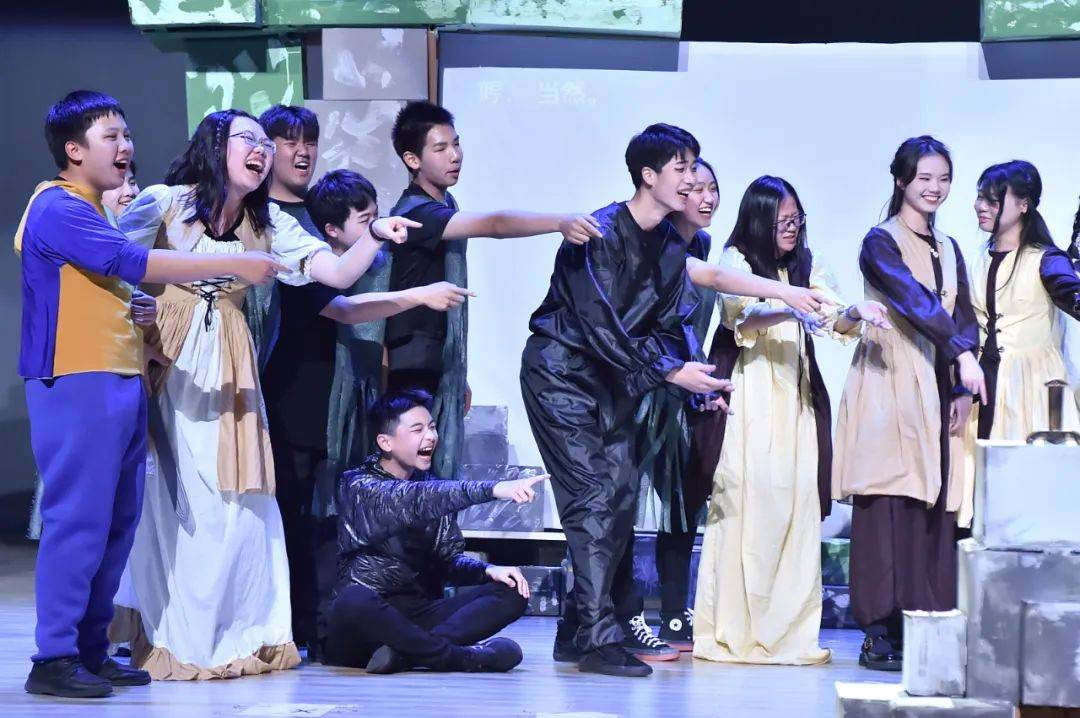
A variety of activities on and off campus provides students with opportunities to express themselves. This is very important to students as the experience of constantly creating and challenging themselves to perform not only helps to build confidence in the students by osmosis, but also allows everyone to become part of a group and to build a sense of community through the bond of drama performance.
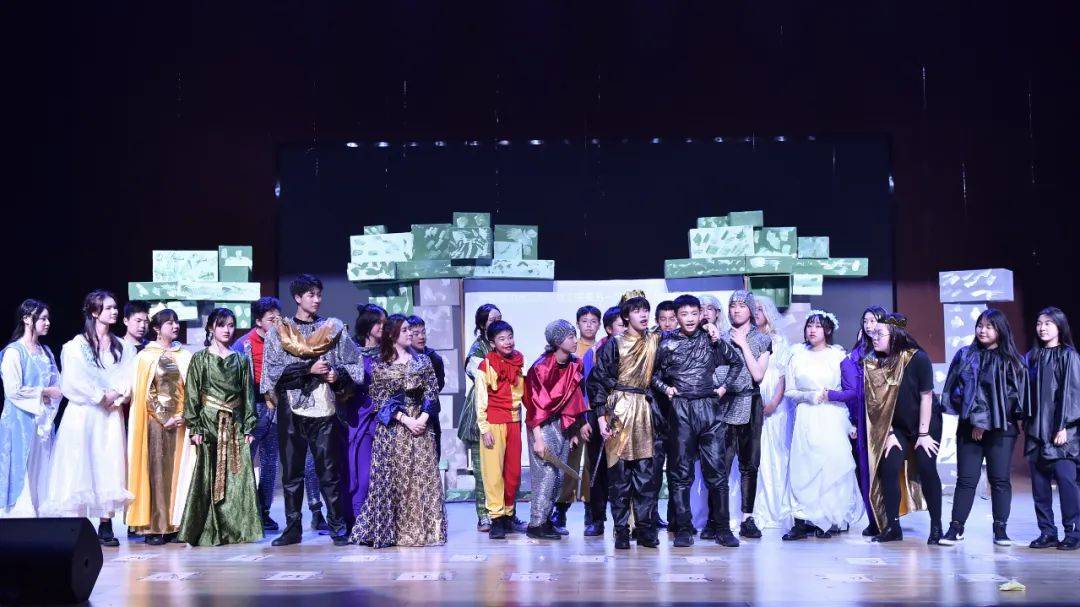
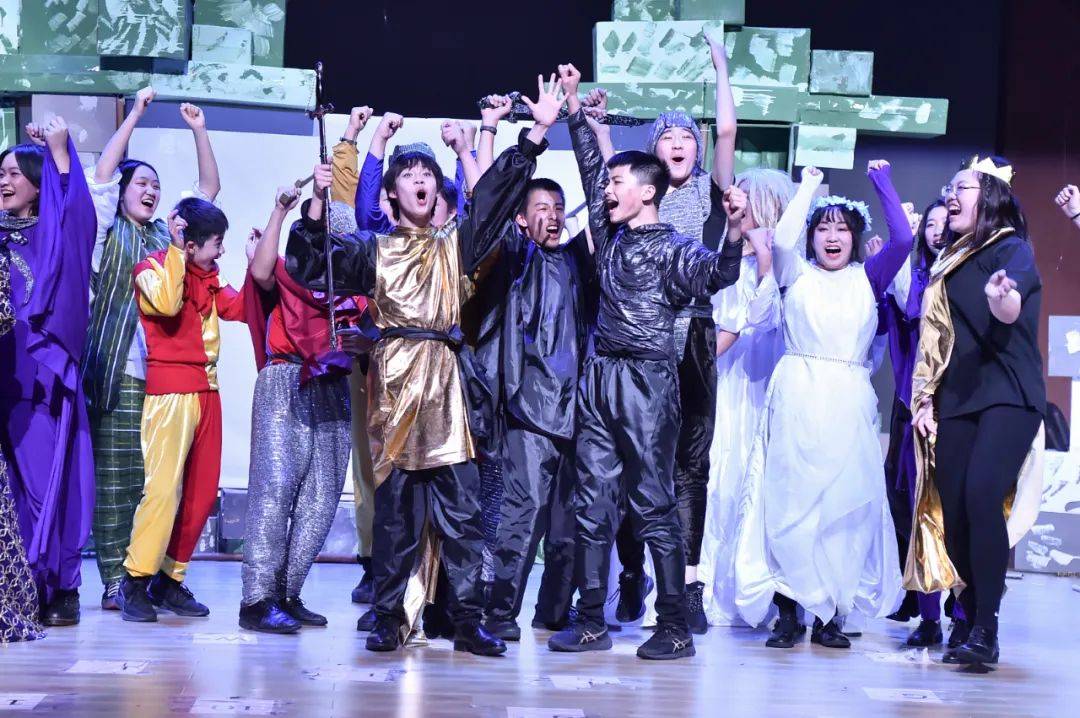
I have been fond of acting since I was a child, and I hope to be able to express myself. After the professional course in drama, I enjoyed the feeling of performing on stage even more, and I become more confident. In fact, everyone will have their own sparkle, and the learning process of drama is actually the process of finding your own stage.
— Steve G10
Drama classes have made me more confident, and this confidence has been gained not only on stage, but also in all disciplines of study, and my personal expression has also improved.
— Yahaya G10
For students wishing to develop a career in the performing arts, the professional teachers will provide the resources and support they need to do so. The teachers will help students learn the theory of performing arts, provide opportunities for students to act in different productions, challenge themselves in different roles, gain acting experience, and enrich themselves in a wider range of areas such as music, literature and make-up. The teachers will support students to build on their specific plans for their dream school and major.


03 Succeed together! Extend the skills acquired in the drama program to all areas of growth
For most students, drama is not a future career, and the experience is more of a process of improvement. The skills acquired in drama courses can all be extended to other areas.
Learning drama helps students to understand the expression of emotions. Clarify their own emotions and understand how different people express their emotions. Learning to deal with their own emotions, empathize and get along well with others.
Learning drama is also about learning to express language, including the ability to communicate in English, and body language. Students who combine spoken and body language, who grasp the underlying meaning of communication and to be able to use body and voice to convey derivative meanings, so that they can better communicate with others in daily life.
Students learn drama to find themselves and build their confidence on stage. Performing regularly in class, students are constantly experimenting and quickly getting used to presenting themselves in different situations. They will no longer be shy or afraid when they actually need to be on stage for a test.
Learning drama and feeling the magic of teamwork. A play needs to be performed on stage as well as backstage management, with subtitles, sound effects, lighting and props. The pride is felt by everyone involved when the whole production is successfully staged.




Drama is a group art, a group of partners on the same stage, working together for a common performance, giving together when they struggle and sharing the joy when they succeed, which is not the same as being on stage alone.
——Gabrielle G10
During the previous drama production, I was in charge of backstage, including lighting and sound effects. I had a lot of fun working backstage and sharing my success with my classmates during the hard work. I believe these skills will be useful in my future life.
——Jack G8
With the release of the Curriculum Scheme and Standards for Compulsory Education (2022 Edition), more and more parents are paying attention to drama education. Drama education has positive significance in developing students’ imagination, creativity, empathy, language skills, teamwork skills, and other comprehensive abilities and qualities.We hope that as the drama curriculum continues to advance, more students will be able to experience the charm of drama in the future, and every student will be able to express themselves on the drama stage and shine on the stage of life.










